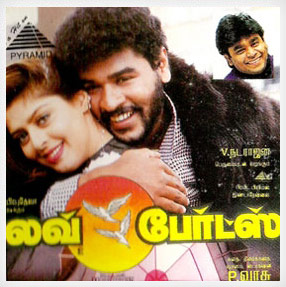
_vijay-super-hit-songs-124-audio-jukebox-124-9039s-vijay-hits-124-tamil-movie-songs-124-deva-124-music-master.jpg)
“This is not like an Olympic competition or an IPL match where only one person can win.

In addition to composing devotional songs, he makes it a point to encourage upcoming gana singers and find them opportunities to sing in films when he can. He himself views all gods as the same and has sung devotional songs for all religions. He says that religion is a matter of preference, slipping in a casual analogy that it’s like the different kinds of clothes that each person prefers. In fact, he often composes songs for the deity at Velankanni. Hailing from a family in which education was prioritized - his brothers are postgraduates and Bala himself graduated with MSc, BL and ML - he puts his social contribution over success in films.


He compares his singing career to a long journey with pit stops at regular intervals-the breaks are as important as the work. Music is a common space for everyone, how long will people keep hearing just me? Everyone needs to get a chance,” he says. I’d finish singing a song and come back home, and then would have to leave immediately to sing another one. The irreverent and unpredictable lyrics were mirrored by Gana Bala’s performance as a hilarious gana -singing minstrel in a surreal Indraloka – his first of many appearances in films like Raja Rani, Madras and Nimirndhu Nil.īut from around 2017, he chose to let his playback singing and film appearances take a backfoot. Gana Bala is a uniquely modern combination of a common minstrel and a court poet.īut despite the powerful lyricism of his lines, he’s probably most remembered for the whacky ‘Kasu Panam’ in Soodhu Kavvum. His early song ‘Nadukkadalula’ from Santhosh Narayanan’s Attakathi (originally composed and written for Bala’s album ‘Vanavil’) have lyrics that remind you of of the simplicity and social concern of Pattukottai Kalyananasundaram’s lyrics in the 50s, with lines like: ullasa vaazhkaiyile panatha serkka mudiyuma (can you make money when you’re always enjoying yourself) ? You could take this as an echo of Kalyanasundaram’s line ‘ vizhithu kondorellaam pizhaithukondaar, unpol kurattai vittorellam kottai vittaar (the wakeful survived but you were snoring and lost everything)’ in MGR’s Nadodi Mannan. The answer to that is that Gana Bala is not just a singer, he’s a singer-lyricist. And if it was Deva who made gana – the native and eclectic musical genre of the common people of Chennai – mainstream with hits like ‘Kavai Padathey‘ from Kadhal Kottai or even ‘Autokaran’ from Baashha, it was Gana Bala who kept it alive in our films in the last decade. He’s the father of gana and it’s because of his work that we get opportunities.” He credits Deva for breaking the impression that gana songs were inauspicious to the point that they were an important part of mass hero films in the 90s. īala says “w hen Deva sir came into films, it gave us a lot of hope. The common element in all these very different songs is the genre of music that he personifies: gana. He has also sung quirky gems with lesser known composers like ‘Patha Oru Lookula’ (also the lyricist) for Santhosh Dayanidhi in Inimey Ippadithan and ‘Doggy Style’ for Dharan Kumar in Naaigal Jaakirathai. He has sung for many of the major composers of the last decade, mixing gana experimentally with a variety of other genres: ‘Adhaaru Udhaaru’ for Harris Jayaraj in Yennai Arindhaal where he mixes gana with the sensibility of coastal music, ‘Hey Baby’ for GV Prakash Kumar in Raja Rani where gana meets jazz and ‘Vandha Kada’ for Yuvan Shankar Raja in Vai Raja Vai, a straight up philosophical gana song with a pop sensibility. We think we know Gana Bala, the singer of popular dance hits like ‘Kaasu Panam’ from Soodhu Kavvum and ‘Athangara Orathil’ from Yaan.


 0 kommentar(er)
0 kommentar(er)
